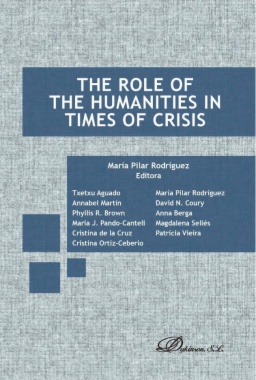

This book explores the relevance of the Humanities at a time when financial crises promote lifestyles and public policies that undermine human rights and gender equality. The articles study the ways in which the Humanities, by emphasizing critical thinking and opening new ways of seeing what institutional discourses and the media fail to address, fulfill an essential role in our societies. It focuses on the role of intellectuals, artists, filmmakers, and educators and reflects on their significant influence to contribute to a more ethical and dignified social representation of the world. Different perspectives are offered; the articles suggest different approaches to the manners in which the Humanities can offer answers to the questions of our time, for the pulse of the arts, for example, interrupts the logic of profit and economic exchange by foregrounding the less obvious: that there are and have always been spaces for societies to instill a civic and reconstructive culture in our midst.
The book offers a balanced presence of theoretical contributions along with other articles that include an illustration of the ways in which analyses of cinema and media can be conducive to a critical reading of social issues which have become fundamental in our societies. The significance of educational practices and critical thinking is evident in most of the articles that form this volume and constitutes the principal focus of reflection in the first four articles, although educational practices, competences and models are present in diverse forms. Another important aspect that is reflected is linked to the present immigration situation in Europe, in which a large number of desperate migrants and asylum seekers are trying to reach the gates of the European Union in dreadful conditions while politicians seem unable to cope with the situation or to provide solutions. Filmmakers and writers are addressing this issue and making audiences aware of the individual experiences that hide behind official discourses. This book offers an insight into the development of our contemporary societies and suggests innovative ways in which the Humanities can make a significant contribution towards a more inclusive and less precarious way of life.